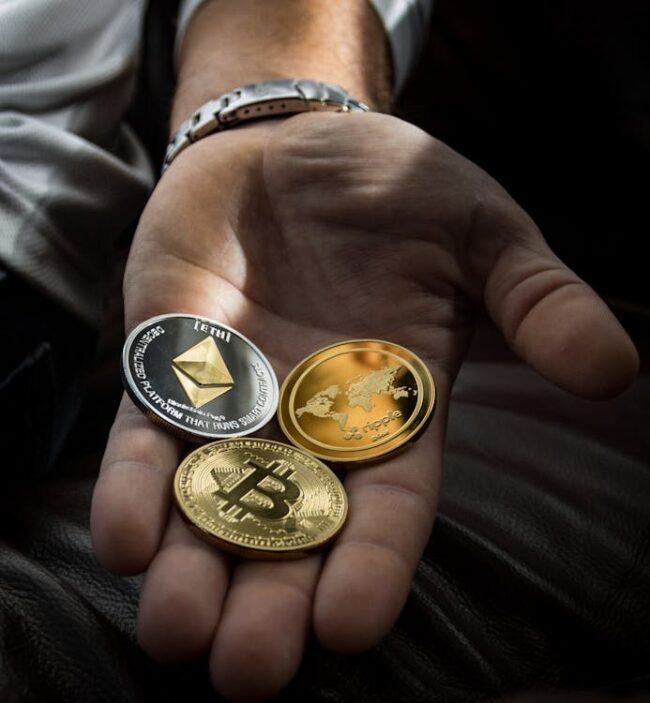Tokens. These little digital units that are being traded like candy online, to the point where it’s becoming hard to figure out what they actually do. From decentralized finance (DeFi) to NFTs and DAOs, tokens seem to be the currency of the future. But it’s almost as if they came from the future… and forgot to tell us how to use them properly.
Beyond their mysterious aura and growing popularity, tokens are one of the cornerstones of blockchain innovations. So, what exactly are these tokens? Why is everyone talking about them, and why are some of them selling like hotcakes (even though we still haven’t fully figured out how to use them)? Let’s break it all down.
Tokens vs Cryptocurrencies: What’s the Difference?
The confusion is real. “Token” and “cryptocurrency” are often used interchangeably, but they’re not quite the same thing. A cryptocurrency, like Bitcoin or Ethereum, typically operates on its own blockchain. In contrast, a token is a digital asset created on an existing blockchain, like Ethereum, Binance Smart Chain, or Solana. In other words, a token doesn’t have its own blockchain; it exists within the ecosystem of another blockchain.
Tokens can serve many different purposes. Some are used to access services (utility tokens), others represent ownership in a project (security tokens), and some, like NFTs, are used to own unique digital objects. See the picture? It’s like a marketplace where everyone is trying to find their niche.
The Different Types of Tokens: Utility, Security, Governance, and NFTs
Let’s break down some of the most common types of tokens:
- Utility Tokens: These tokens give you access to a service or specific functionality within a project. For example, on Uniswap, you need UNI (the platform’s native token) to interact with its decentralized finance protocol. These tokens are not designed as investments but more as a means of access.
- Security Tokens: These tokens represent a share of ownership in an asset or project. For instance, a security token could be a digitized share in a company, offering the holder rights like dividends or a portion of the profits. Essentially, a security token functions like a traditional financial security, but in a decentralized form.
- Governance Tokens: These tokens allow holders to participate in the management of a project. Owning a governance token gives you voting rights, meaning you can influence the protocol’s evolution or decide which projects to fund. The DAI token on MakerDAO is a great example of a governance token, where users have a voice in the system.
- NFTs (Non-Fungible Tokens): And of course, NFTs, which exploded in popularity in recent years, are a specific type of token. Unlike other tokens, which are fungible (meaning one token is interchangeable with another), an NFT is unique and cannot be replaced. Whether you’re buying digital art, collectibles, or tickets to an exclusive concert, NFTs ensure digital scarcity.
Why Does Everyone Want Tokens?
Tokens have taken over discussions in the crypto space, but why is everyone so obsessed with them? There are a few key reasons.
First, tokens enable the tokenization of assets, making it possible to trade them online. For example, NFTs allow artists to sell digital artwork without needing a physical gallery.
Secondly, decentralized finance (DeFi) heavily relies on tokens. Platforms like Compound and Aave let users lend and borrow money using tokens as collateral. Moreover, governance tokens empower users to have a say in the development of these platforms, adding a democratic and decentralized element to the process.
The Risks of Tokens: Boom and Bust
As with anything in the cryptocurrency world, tokens come with risks. While some tokens skyrocket in value, others can crash just as quickly. ICOs (Initial Coin Offerings) and IDOs (Initial DEX Offerings) have allowed promising projects to raise funds, but they’ve also led to scams where creators disappear with investors’ money.
Tokens can be extremely volatile, so it’s important to do your research before diving into the token world. For example, the Shiba Inu token, initially seen as a meme coin with no real purpose, has experienced extreme volatility, both for the better and for the worse.
The Tokens of Tomorrow: New Frontiers
The future of tokens looks promising. We’re on the brink of a full tokenization of the economy, whether it’s via security tokens representing stocks or NFTs offering ownership rights to digital assets. Additionally, governance tokens are likely to become even more important in decentralized projects, allowing everyone to participate in key decision-making in blockchain ecosystems.
Tokens: Gifts or Traps?
In summary, tokens are essential elements of the blockchain ecosystem. Their use varies depending on the project, and there’s an endless variety of tokens that can be useful in different areas. However, as with everything in the crypto space, caution is necessary. Sometimes, behind a token’s surge in price, there could be a looming collapse.
Tokens are exciting, but always take the time to understand what you’re getting into—because while the rewards can be huge, so can the risks.
